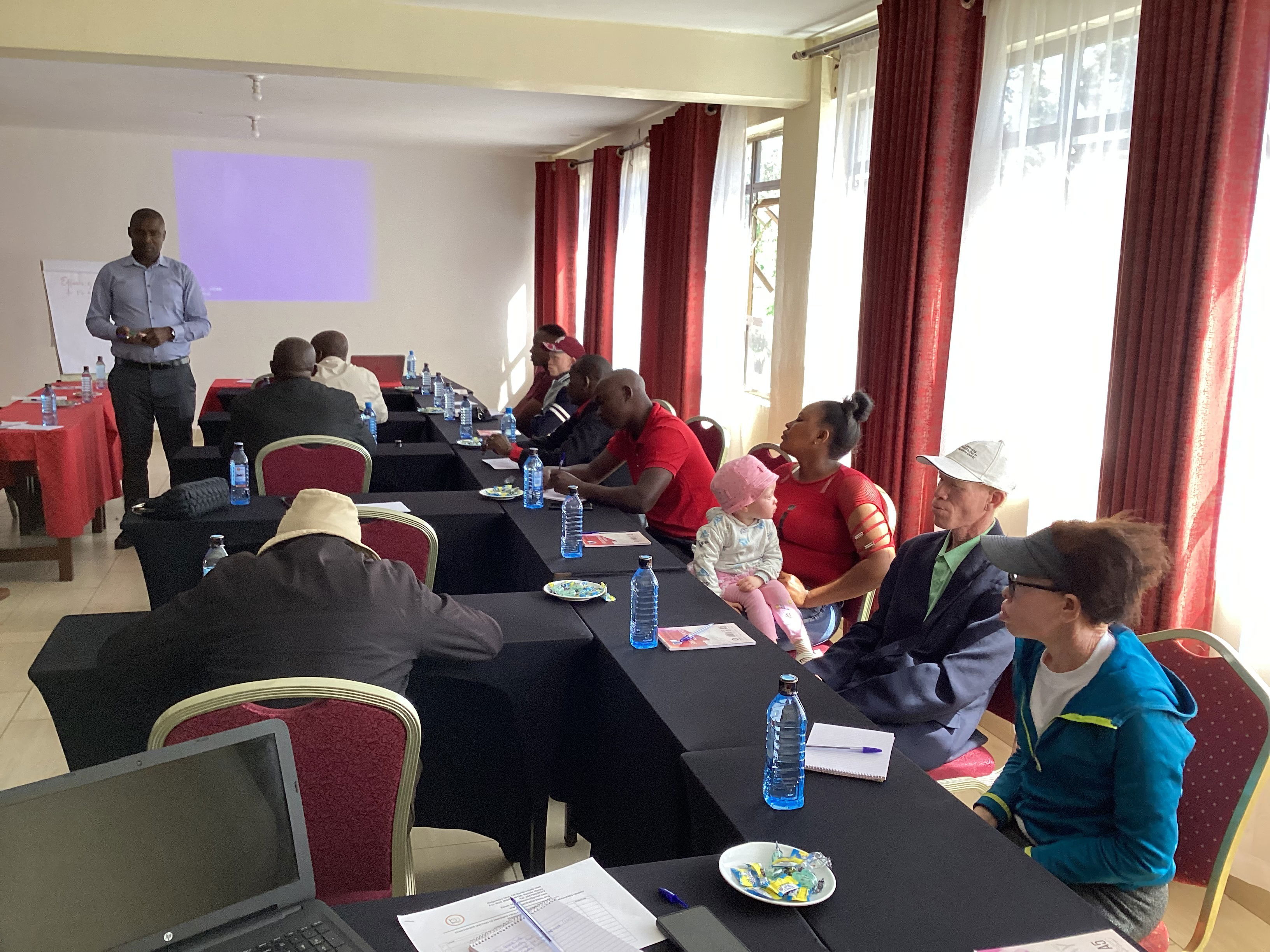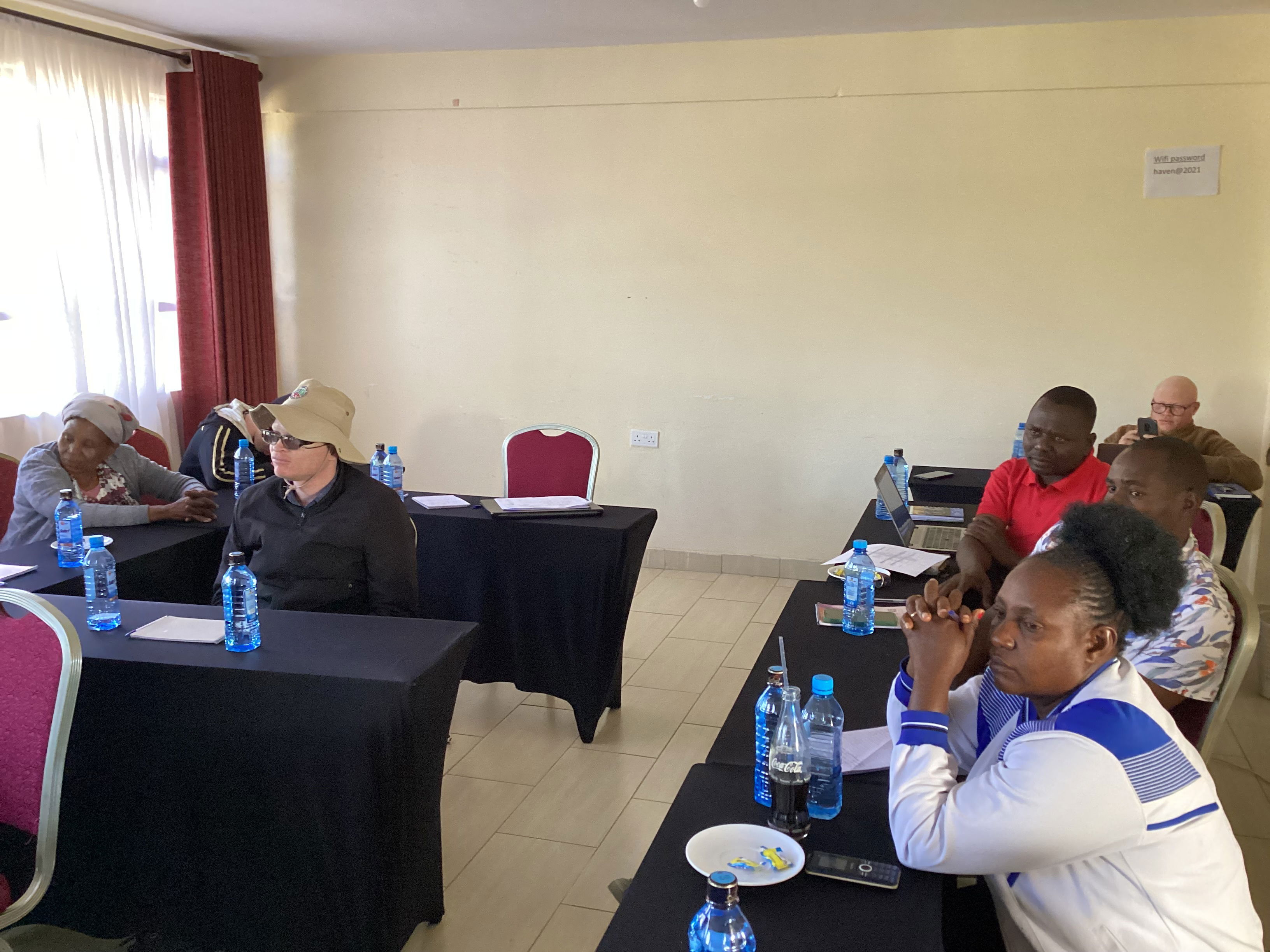REBUILDING THE LIVES OF PERSONS WITH ALBINISM POST COVID-19 IN MACHAKOS COUNTY
The COVID-19 pandemic left an indelible mark on communities worldwide, with vulnerable populations, such as persons with albinism, facing even greater repercussions. Recognizing the urgent need for support, Black Albinism, in collaboration with the National Democratic Institute (NDI), is spearheading the "Empowering Persons With Albinism(PWAs) through Inclusive Policies and Services in Machakos County" project. This initiative aims to analyze health-related interventions, particularly post-COVID-19, and address the priorities of persons with albinism through advocacy, capacity building, and inclusive interventions aligned with the Convention on the Rights of Persons with Disabilities (CRPD) and the Constitution of Kenya 2010.

The health priorities identified during the research stage of this project underscore the critical areas of concern for persons with albinism in Machakos County : the inefficiency of skin-care services, lack of comprehensive eye-care services and unaffordability of the same, under-representation in health service provision and facility management boards, and low access to health services.
ADDRESSING THE HEALTH PRIORITIES
1. Inefficiency of Skin-care Services
One of the primary concerns for persons with albinism post covid-19 is the inefficiency of skin-care services like sunscreen and skin cancer screening. These two, which are trivial for persons with albinism are either inaccessible or unaffordable.Black Albinism plans to lobby the County Government of Machakos to include sunscreen lotion provision in subsequent annual development plans and budgets. Additionally, we plan on pushing for an integrated logistical management system which will be introduced to streamline the supply and distribution of sunscreen lotions at all levels. The program also aims to lobby for the provision of skin cancer screening services at county and sub-county hospitals, accompanied by awareness campaigns on the distribution of sunscreen lotions.
2. Lack of Comprehensive Eye-care Services and Unaffordability
Another critical focus is the lack of comprehensive eye-care services and their unaffordability. Lack of enough melanin in the eyes of persons with albinism results in either low or entirey poor vision as their eyes struggle to take in natural light hence the need for medicated spectacles. Black Albinism aims to lobby for the inclusion of comprehensive eye care as part of primary healthcare by the County Government of Machakos. Also, awareness campaigns will be conducted to educate persons with albinism, caregivers, and community health promoters about the need for medicated spectacles and other protective gear such as wide-brimmed hats that also help with the eyes.

3. Under-representation in Health Service Provision and Facility Management Boards
Addressing the under-representation of persons with albinism in health service provision and facility management boards is crucial. The program plans to conduct capacity building for representatives and advocate for their inclusion in health facilities' management boards. The aim is to have persons with albinism on such platforms speaking for the needs of persons with albinism.
4. Low Access to Health Services
Persons With Albinism more often than not face discrimination when attempting to seek medical services majorly because of their difference in skin tone. In other cases, the poverty level among some persons with albinism renders healthcare unaffordable. To combat low access to health services, Black Albinism aims to conduct a census of persons with albinism in Machakos County. Subsequently, the program will mobilize persons with albinism for mass registration by the National Council for Persons with Disabilities (NCPWD) to jumpstart affordable and accessible healthcare to persons with albinism.
As we navigate the post-COVID-19 landscape, it is imperative to prioritize the well-being of every community, especially those who have historically faced neglect and discrimination. The "Empowering PWAs through Inclusive Policies and Services in Machakos County" Program is not just a project; it is a step towards systemic and societal change. By addressing the specific health priorities of persons with albinism, this initiative contributes to building a more inclusive and equitable society where everyone, regardless of their condition, can access quality healthcare and lead dignified lives.